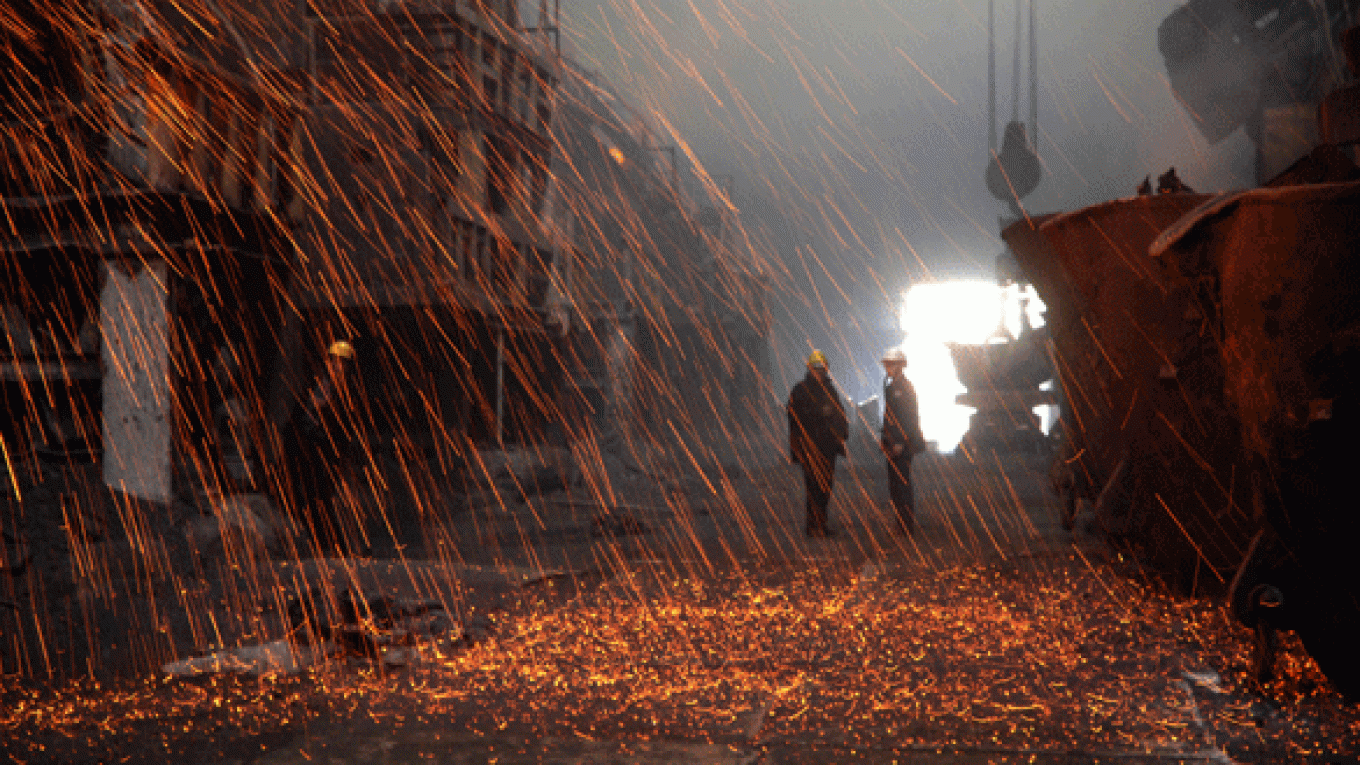NORILSK — Lung-blackening pollution and Arctic isolation have not stopped mining giant Norilsk Nickel from attracting graduates to work in its mines.
Norilsk enjoys only a few weeks of summer and hardly sees the sun from November to February, when temperatures regularly fall to minus 40 degrees Celsius.
But once in Norilsk, four time zones away from Moscow, new hires have a hard time leaving. Many stay on to open businesses and raise families, transforming the former gulag town into a thriving city of 210,000.
The company accounts for 38 percent of the world's palladium and 22 percent of nickel production.
Money lures graduates to leave the "mainland" — the local term for the rest of Russia — and come to work in mines more than a kilometer beneath the Earth's surface.
Sergei Gorbachev, director of Taimyrsky, the country's deepest mine, said the average monthly salary at Taimyrsky mine stood at 74,000 rubles ($2,530) in 2010 — more than three times the national average of 20,500 rubles.
Night can last in Norilsk from late November to early February. Twentysomethings hang out at German pubs sipping beer at 10 euros ($14) a glass, and go bowling at a local club that greets visitors with an aquarium of iguanas.
The caretaker of the world's most northerly mosque, Mukum Sidikov, said freely available jobs and high salaries fueled the boom.
"The prayer room was almost empty a few years ago, and now it cannot hold all the visitors," he said.
Rough conditions do not deter newly minted miners from top schools like the St. Petersburg Institute of Mines, headed by an ally of Prime Minister Vladimir Putin, from working at plants and pits that operate 24 hours a day, seven days a week, year after year.
Leonid Krupnov, head of the technical department at Norilsk's Nadezhda plant, which produces semi-finished nickel and copper, said that after graduating in St. Petersburg he had moved to what he called the "Mecca of metallurgy."
"If you want become a real specialist, it is the right place," said Krupnov, 43.
Gorbachev said that every year Norilsk Nickel management goes on recruiting tours at colleges and institutes across Russia.
As a result, only 10 percent of about 23,500 workers at Norilsk's plants and mines are natives of the town.
"It really sucks you in," said Georgian-born Aleko Gabuchiya, deputy director of the copper plant, who has lived in Norilsk since finishing college in 1974.
The high salaries date to the second half of the 20th century, when the Soviet Union encouraged relocation by paying enough to travel, then a big luxury.
"Back then people had a flat, a country house, a car and could afford to fly to Moscow to have a beer on weekends," said Yelena, a guide at a local museum.
Now they hardly need to make the four-hour flight to Moscow to enjoy urban luxuries. Restaurants serve ravioli with red caviar and venison steaks. Expensive sport-utility vehicles drive along the streets and plays at the local theater sell out.
The steady inflow of workers is a result of efforts by the company, whose top owners are tycoon Vladimir Potanin and the world's largest aluminum producer, RusAl.
Workers are rewarded with up to 95 days of annual leave, the retirement age at some plants is 45 years and the best employees are granted interest-free mortgage programs in the mainland, with Norilsk Nickel paying about half the real estate value.
Posters advertise apartments and houses in the country's southern regions as modest alternatives. Many citizens of Norilsk still hold out hope of retirement in softer climes.
A bartender of more than 30 years said he dreams of moving to the south from Norilsk's permafrost: "I don't want to be buried like a mammoth."
A Message from The Moscow Times:
Dear readers,
We are facing unprecedented challenges. Russia's Prosecutor General's Office has designated The Moscow Times as an "undesirable" organization, criminalizing our work and putting our staff at risk of prosecution. This follows our earlier unjust labeling as a "foreign agent."
These actions are direct attempts to silence independent journalism in Russia. The authorities claim our work "discredits the decisions of the Russian leadership." We see things differently: we strive to provide accurate, unbiased reporting on Russia.
We, the journalists of The Moscow Times, refuse to be silenced. But to continue our work, we need your help.
Your support, no matter how small, makes a world of difference. If you can, please support us monthly starting from just $2. It's quick to set up, and every contribution makes a significant impact.
By supporting The Moscow Times, you're defending open, independent journalism in the face of repression. Thank you for standing with us.
Remind me later.






